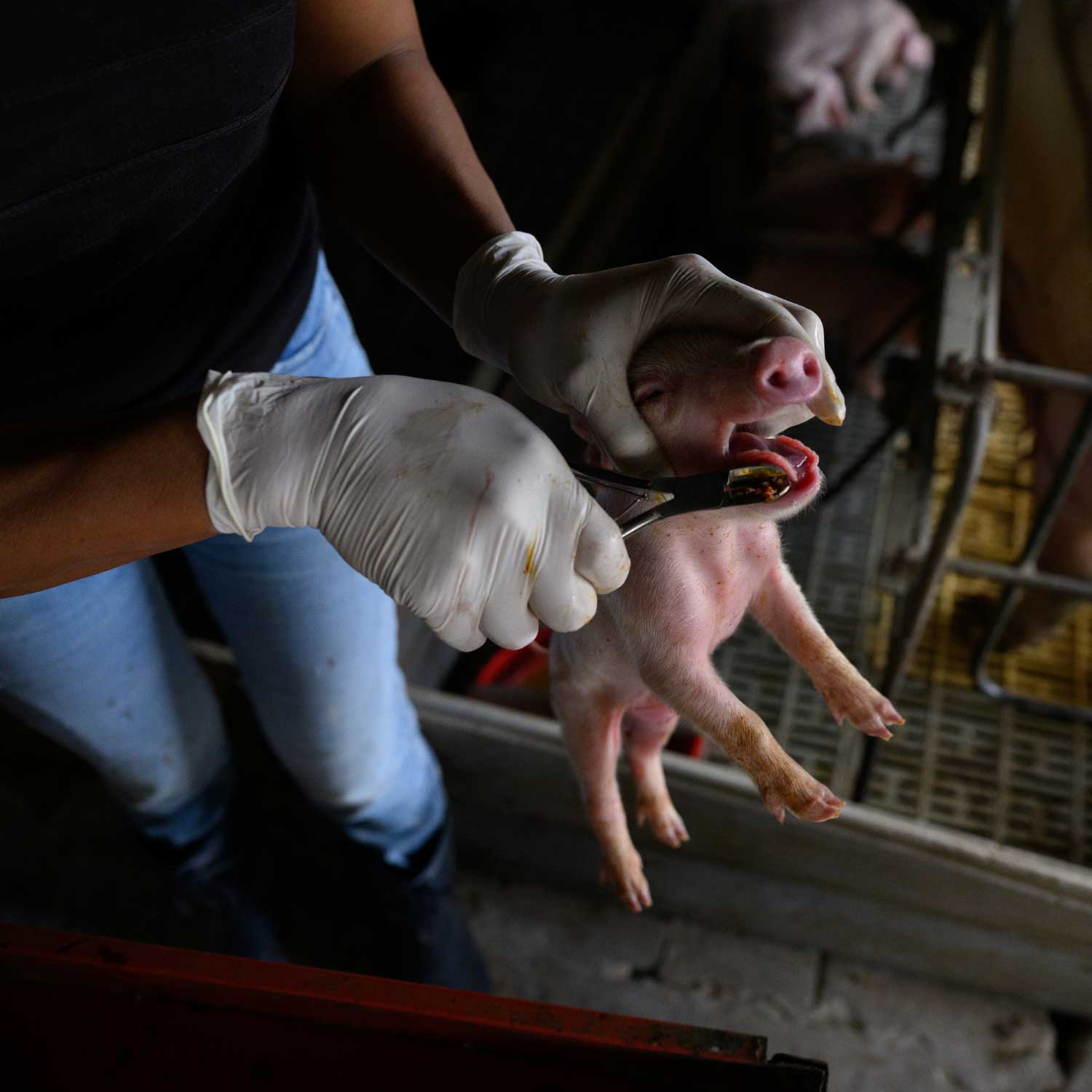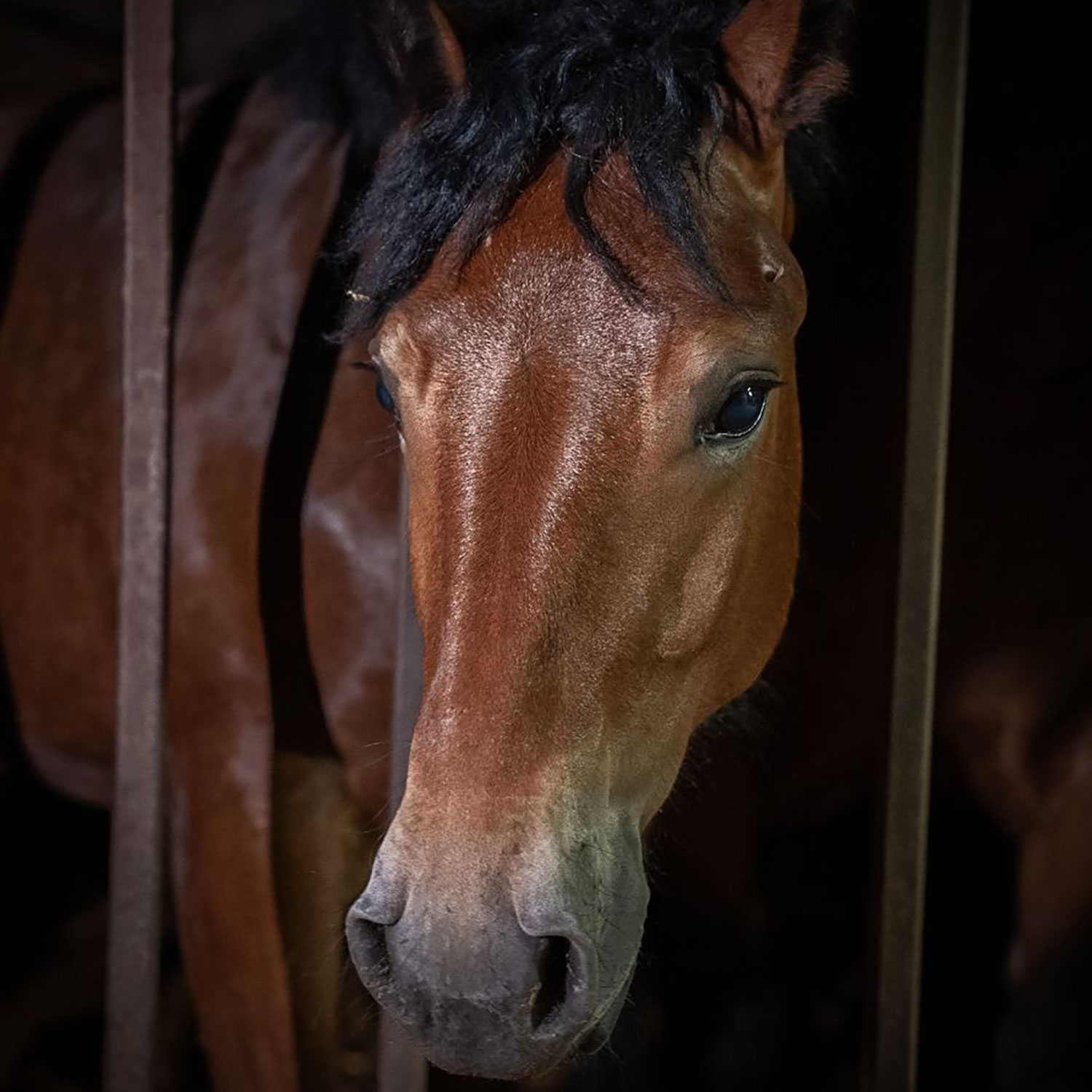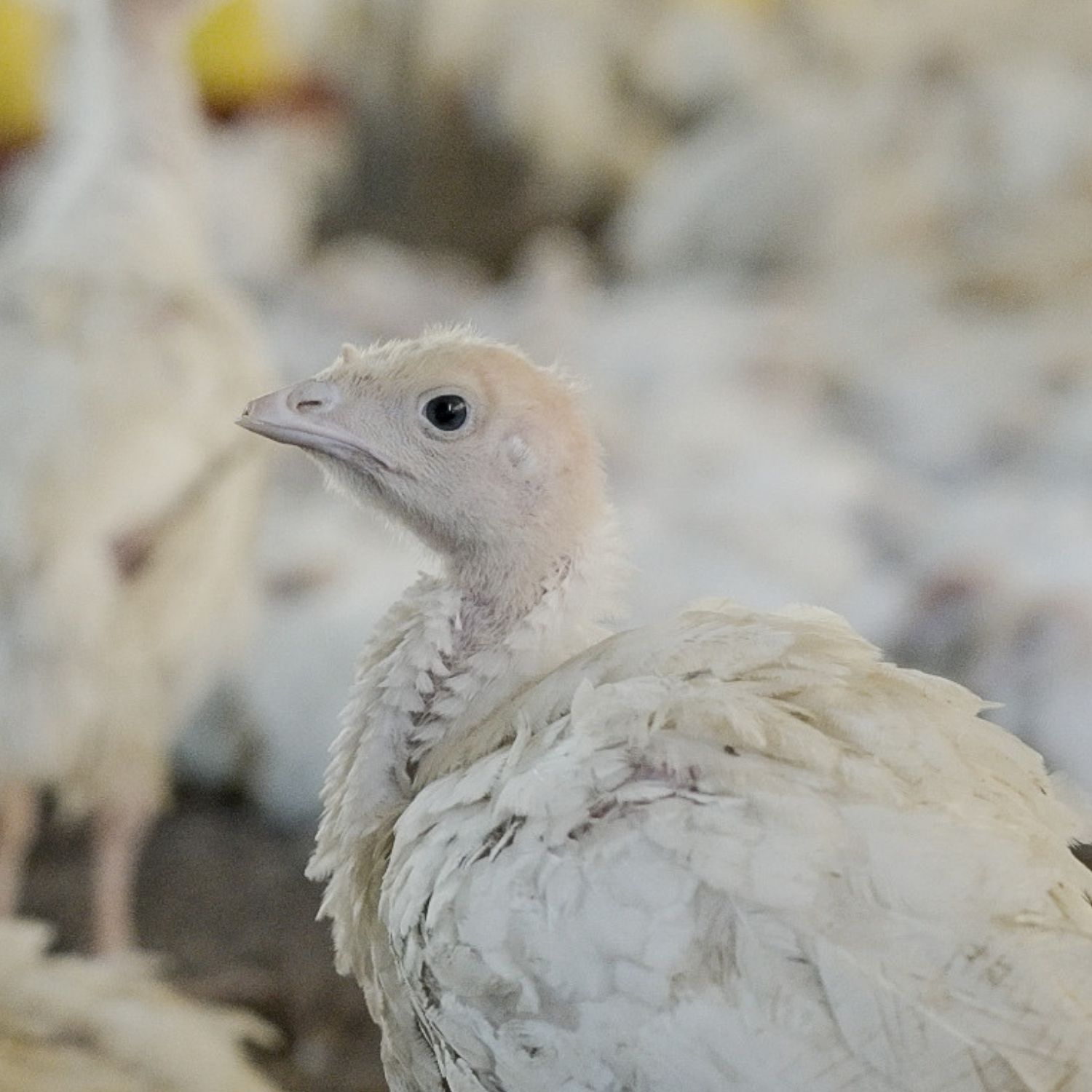INVESTIGATION: Pregnant cows killed in Brazilian slaughterhouses
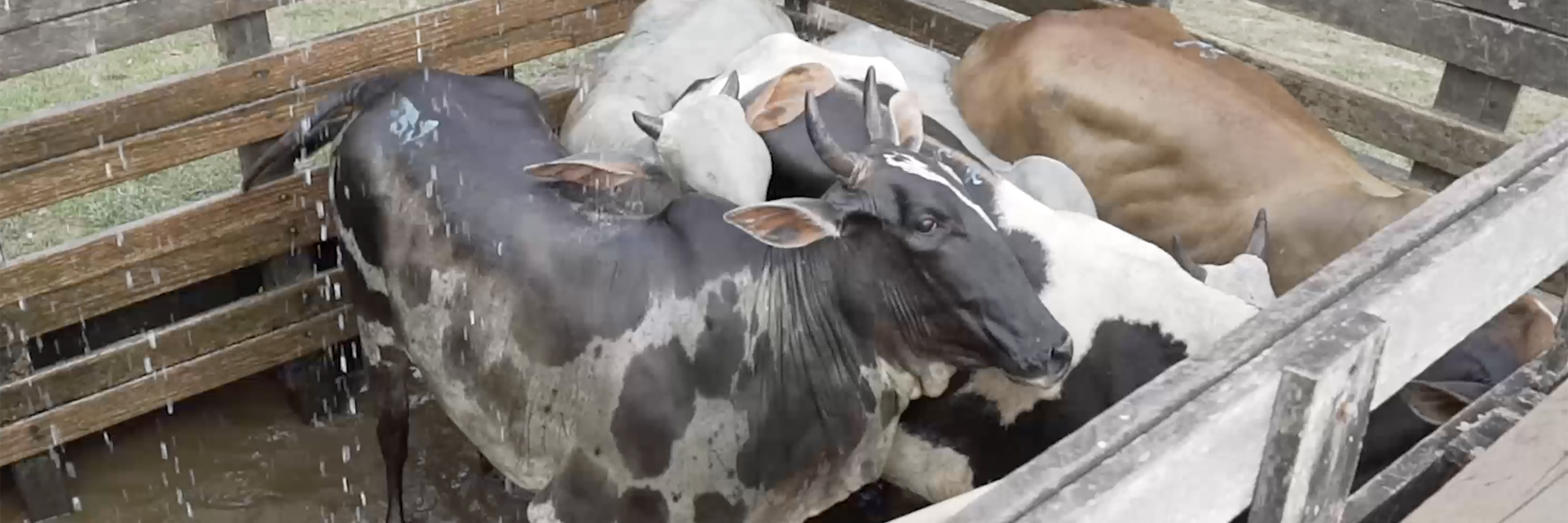
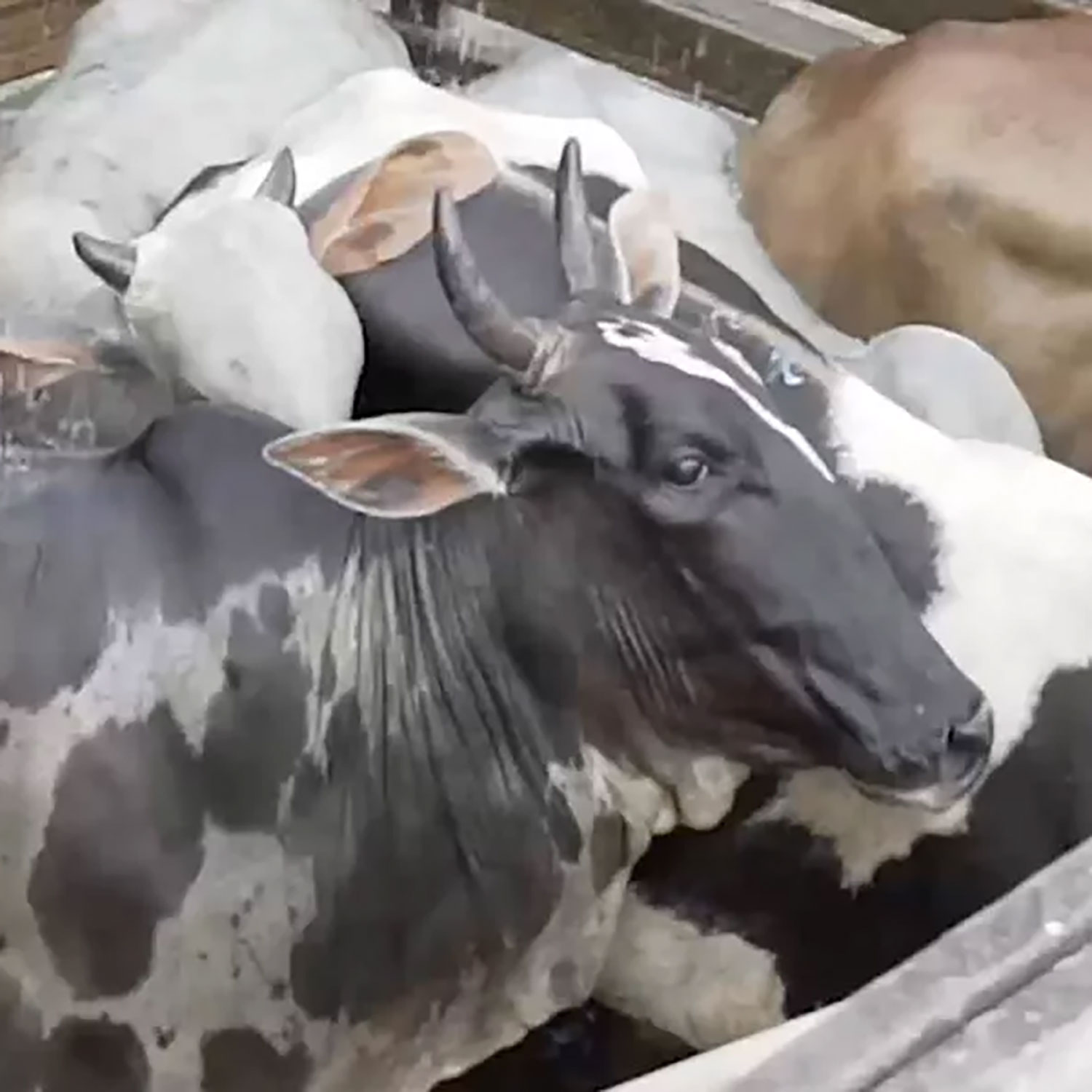
Animal Equality has released a shocking investigation into Brazil’s meat industry and its practice of slaughtering pregnant cows. Considered an animal mistreatment practice and condemned by experts, we are urging Brazil’s Ministry of Agriculture to forbid the killings of these at-risk animals.
About half of the cows slaughtered in Brazil are female, and when they are pregnant, it presents animal welfare issues for both the cows and their calves. Our investigation found:
- A pregnant cow shot and hung to bleed out while her live calf struggled inside her
- Live calves cut from their mothers and dumped onto the processing room floor
Live animal transport is considered an extremely stressful process for animals and made even more harmful for those who are pregnant. In the case of pregnant cows, the weight of the uterus and fetus can reach up to 165 pounds.
Cows in the final third of pregnancy are at greater risk of health and welfare problems during and after transport, as they are more susceptible to spontaneous abortion or premature birth, and can experience heat stress, dehydration, injuries, and metabolic diseases. Because of this susceptibility, the World Organization for Animal Health and Agriculture Organization of the United Nations considers animals in late pregnancy unfit to travel, as they may suffer and not receive adequate welfare during their journey.
In 2017, Brazil’s Ministry of Agriculture, Livestock and Supply (MAPA) approved a regulation for industrial and sanitary inspection of animal origin (RIISPOA) that allows the use of pregnant cows meat for consumption, and ever since the number of pregnant cows slaughtered has increased. This regulation has been denounced as animal mistreatment by inspectors and animal welfare specialists.
“This is just one of the abusive practices that customers don’t realize happens within the beef and dairy industries,” says Carla Lettieri, Executive Director of Animal Equality Brazil. “We want to make sure that people know the truth and join us in demanding that the Brazillian government stop this practice that causes so much suffering to pregnant cows and their calves.”
Animal Equality is asking the Brazilian Ministry of Agriculture, Livestock and Supply to forbid the slaughter of pregnant cows by doing the following:
- Approve a new regulation that requires pregnancy tests for the shipment of live animals in accordance with the minimum standard (NI 46/2018) required by the World Organization for Animal Health (WAHIS) to prevent pregnant animal suffering.
- Increase animal welfare inspections at Brazil’s slaughterhouses
- Fine slaughterhouses that do not comply with Brazil’s animal protection regulations.
Regardless of where they are slaughtered, animals used for food are abused and mistreated from the day they are born to the moment they are killed. As this investigation has shown, animal protections are not considered by greedy companies who value profit over stopping practices that cause animals suffering. Spare future pain for animals by leaving them off your plate.

